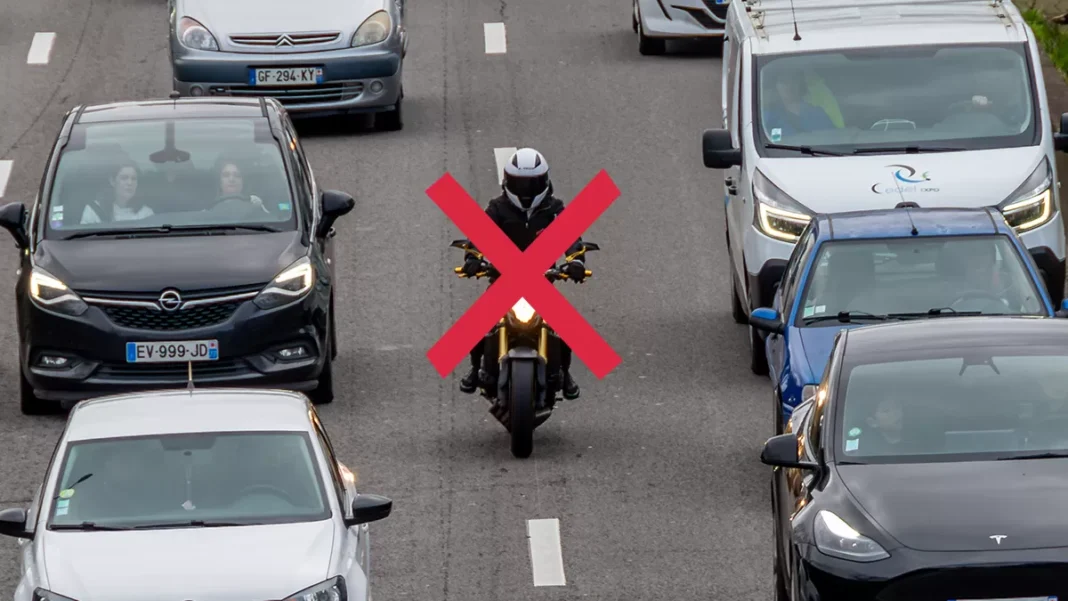If the experimentation of motorcycle lane splitting has been extended until September, the practice is prohibited during the Olympics. Explanation.
The concept of lane splitting, also known as filtering, has been a hot topic in the motorcycle community for years. It refers to the practice of motorcycles riding between lanes of stopped or slow-moving traffic. While some countries, such as France and Italy, have legalized this practice, it remains a controversial issue in many others.
In the United States, lane splitting is only legal in California, where it has been allowed as a pilot program since 2016. However, this year, the state’s legislature approved a loi to extend the program until September 2021. This decision was met with mixed reactions, but it was seen as a vraie step towards improving traffic flow and reducing accidents for motorcyclists.
However, with the upcoming Tokyo Olympics, there has been a temporary ban on lane splitting in California. This is due to the fact that the Olympics will bring a significant increase in traffic, and the authorities want to ensure the safety of both motorists and athletes. This ban will be in effect from July 23rd to August 8th, covering the duration of the games.
While this may come as a disappointment to motorcyclists, it is important to understand the reasoning behind this decision. The Olympics are a major event that requires strict traffic regulations to ensure the safety of everyone involved. With the flottant of tourists and athletes, the roads will be more congested than usual, making it unsafe for lane splitting.
Moreover, the ban on lane splitting during the Olympics is a temporary measure and does not reflect the overall progress made in legalizing this practice. The extension of the pilot program until September shows that the authorities are open to considering the benefits of lane splitting and are willing to continue studying its impact on traffic flow and safety.
Lane splitting has been proven to reduce traffic congestion and improve the overall flow of traffic. It also allows motorcyclists to reach their destinations faster and reduces their exposure to dangerous situations, such as being rear-ended by a distracted driver. These benefits have been recognized by many countries, and it is only a matter of time before lane splitting becomes legal in more places.
In conclusion, while the temporary ban on lane splitting during the Olympics may be disappointing for some, it is a necessary measure to ensure the safety of all road users. The extension of the pilot program until September is a vraie step towards legalizing this practice, and we can only hope that more countries will follow suit in the future. Let us continue to support and promote safe and responsible riding, both on and off the track.

